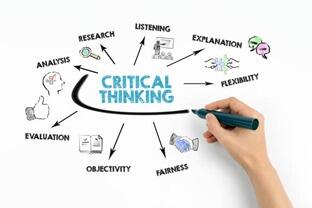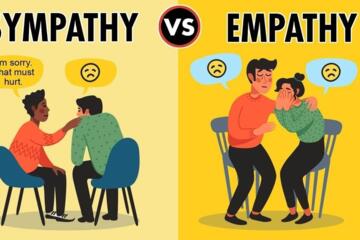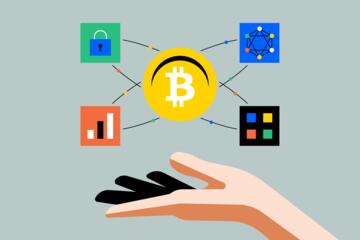Cryptocurrency is a type of digital or virtual currency that uses cryptography for security. Unlike traditional currencies issued by governments (like the US dollar or the euro), cryptocurrencies operate on decentralized networks based on blockchain technology. This means they are not controlled by any central authority, such as a bank or government,
Key Characteristics of Cryptocurrency
- Digital Nature: Cryptocurrencies exist purely in digital form. There are no physical coins or notes; everything is recorded electronically.
- Decentralization: Cryptocurrencies operate on a decentralized network, meaning no single entity has control over the currency. This is in stark contrast to traditional banking systems.
- Cryptography: Advanced cryptographic techniques secure transactions and control the creation of new units. This ensures the integrity and security of the currency
How Does Cryptocurrency Work?
Blockchain Technology
At the heart of cryptocurrency is blockchain technology. A blockchain is a decentralized ledger that records all transactions across a network of computers. This ledger is public and transparent, meaning anyone can view the transactions, but it is also secure and immutable, meaning once data is recorded, it cannot be altered
Transactions and Mining
When someone wants to send cryptocurrency to another person, the transaction is broadcast to the network. Miners, who are participants in the network, then verify the transaction using complex mathematical algorithms. Once verified, the transaction is added to the blockchain. Miners are rewarded with cryptocurrency for their efforts, which is how new units of the currency are created
Wallets
To use cryptocurrency, you need a digital wallet. This wallet stores your cryptographic keys, which are necessary to access and manage your cryptocurrency. Wallets can be software-based (like an app on your phone) or hardware-based (a physical device)
Why Is Cryptocurrency Important?
Financial Freedom
Cryptocurrency offers a new way to think about money and financial transactions. By removing the need for intermediaries like banks, it provides greater financial freedom and control to individuals. This can be particularly empowering in regions with unstable financial systems or limited access to traditional banking services.
Security and Transparency
The use of blockchain technology ensures that transactions are secure and transparent. Each transaction is recorded on a public ledger, making it difficult to alter or fake transactions. This transparency can help reduce fraud and increase trust in the system
Investment Opportunities
Cryptocurrencies have also opened up new investment opportunities. Many people see cryptocurrencies as a way to diversify their investment portfolios. However, it's important to note that the cryptocurrency market is highly volatile and can be risky
Common Types of Cryptocurrency
Bitcoin
Bitcoin is the first and most well-known cryptocurrency. Created in 2009 by an anonymous person (or group) known as Satoshi Nakamoto, Bitcoin was designed to be a decentralized digital currency. It remains the most widely used and valuable cryptocurrency
Ethereum
Ethereum is another popular cryptocurrency, but it offers more than just a digital currency. Ethereum's blockchain allows developers to build decentralized applications (dApps) and smart contracts, which are self-executing contracts with the terms directly written into code
Altcoins
Altcoins refer to any cryptocurrency other than Bitcoin. There are thousands of altcoins, each with its unique features and purposes. Some popular altcoins include Litecoin, Ripple, and Cardano.
How to Get Started with Cryptocurrency
Step 1: Educate Yourself
Before diving into cryptocurrency, it's crucial to educate yourself. Understand the basics of how cryptocurrencies work, the risks involved, and the different types of cryptocurrencies available. There are plenty of online resources, courses, and communities that can help you get up to speed.
Step 2: Choose a Wallet
To store and manage your cryptocurrency, you'll need a digital wallet. There are various types of wallets, including software wallets (like mobile apps) and hardware wallets (physical devices). Choose one that suits your needs and offers robust security features.
Step 3: Select an Exchange
To buy and sell cryptocurrency, you'll need to use a cryptocurrency exchange. Exchanges are platforms where you can trade cryptocurrencies for other assets, such as traditional money or other digital currencies. Some popular exchanges include Coinbase, Binance, and Kraken.
Step 4: Start Small
If you're new to cryptocurrency, it's a good idea to start with small investments. The market can be highly volatile, and prices can fluctuate dramatically. Starting small allows you to learn the ropes without risking significant amounts of money.
Step 5: Stay Informed
The world of cryptocurrency is constantly evolving. Stay informed about market trends, new technologies, and regulatory changes. Joining online communities, following industry news, and participating in forums can help you stay up-to-date.
Risks and Challenges
While cryptocurrency offers many exciting opportunities, it also comes with risks and challenges:
Volatility
Cryptocurrency prices can be highly volatile. This means that the value of your investment can fluctuate dramatically in a short period. While this volatility can present opportunities for profit, it also comes with a high risk of loss.
Security Concerns
While blockchain technology is secure, the broader cryptocurrency ecosystem can be vulnerable to hacking and fraud. It's essential to take steps to secure your investments, such as using reputable exchanges and wallets and enabling two-factor authentication.
Regulatory Uncertainty
The regulatory environment for cryptocurrency is still evolving. Different countries have different approaches to regulating cryptocurrencies, and these regulations can impact the market. Stay informed about the legal landscape in your region.
Conclusion
Cryptocurrency is a fascinating and rapidly evolving field that offers new ways to think about money, investments, and financial transactions. By understanding the basics of how cryptocurrencies work, the different types available, and the steps to get started, you can navigate this exciting world with confidence. Remember to educate yourself, start small, and stay informed to make the most of the opportunities that cryptocurrency presents. Whether you're looking to invest, explore new technologies, or simply understand the future of finance, cryptocurrency offers a world of possibilities.








